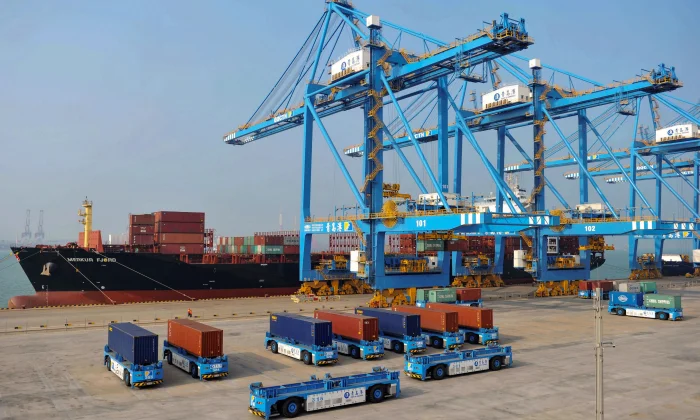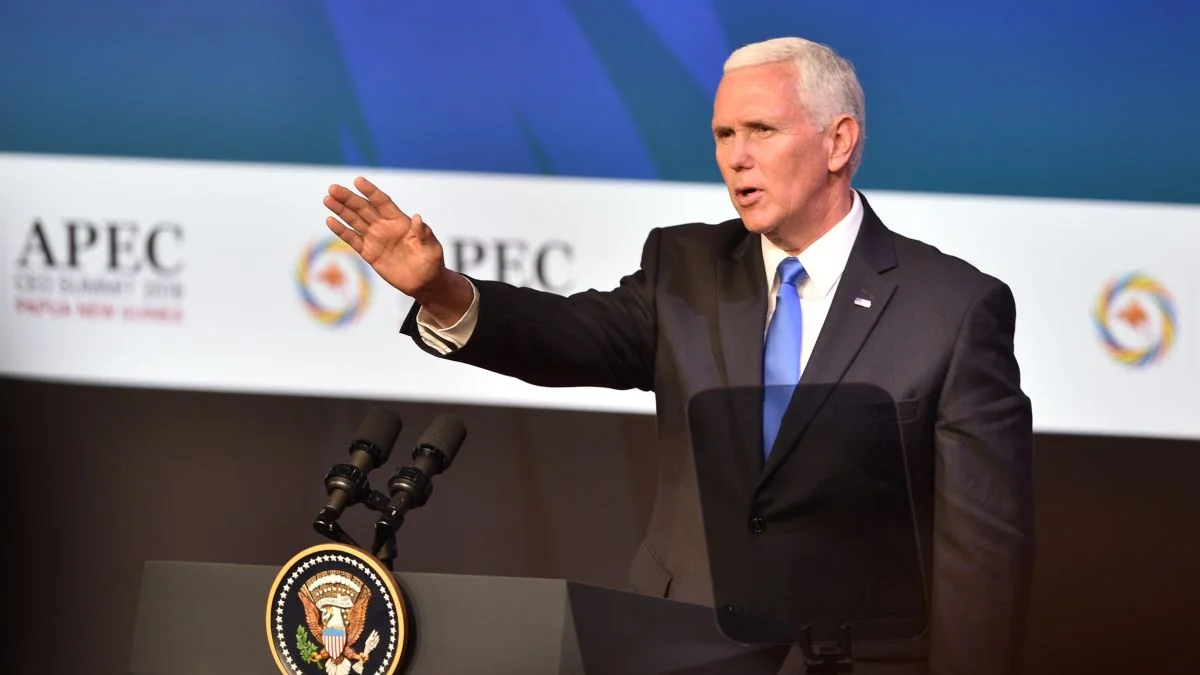How American Academia Misleads About China
November 20, 2018 Updated: November 20, 2018
WASHINGTON—U.S. academia is having difficulty giving students and the public at large an honest picture of today’s China, according to experts.
Scholars censor themselves, Chinese students attending U.S. colleges and universities are kept on a tight ideological tether, and China-sponsored institutes for teaching Chinese culture are offering propaganda.
Self-censorship
Perry Link, emeritus professor of East Asian Studies at Princeton University, says that for various reasons, especially to gain access to China for study, American China scholars practice self-censorship, and adopt the official narrative of China when talking about sensitive issues.
“We don’t talk about ‘Taiwan independence’. We talk about ‘the cross-Strait relations.’ We don’t talk about ‘the occupation of Tibet.’ We don’t call the June 4th Massacre ‘massacre.’ It is June 4th ‘incident,’ or something like that,” Link said, during remarks at the “Mark Palmer Forum: China’s Global Challenge to Democratic Freedom,” sponsored by Freedom House at the Hudson Institute on Oct. 24.
Perry Link, emeritus professor of East Asian Studies at Princeton University, speaking at the “Mark Palmer Forum: China’s Global Challenge to Democratic Freedom” at the Hudson Institute in Washington on Oct. 27, 2018. (York Du/NTD)
Because of the self-censorship of overseas China scholars, as well as the efforts of the Chinese Communist Party (CCP)’s propaganda ministry, when people search for certain terms or phrases, they get CCP’s narratives, Link said.
Link did some experiments and found that if he searched “Does China have democracy?”—a question suggested by Google under “people also search for” list—the answer was, “Chinese have expressed skepticism towards Western-style democracy as incompatible with traditionalist Chinese culture. They hold that government is legitimate not when people influence it but when it represents their higher interests.”
When he searched “Do the people in China vote?” the answer was, “Elections in China are based on a hierarchical electoral system, whereby local People’s Congresses are directly elected, and all higher levels of People’s Congresses up to the National People’s Congress, the national legislature, are indirectly elected by the People’s Congress of the level immediately below.”
In fact, in the elections for the local People’s Congresses, individuals can only vote for those the CCP has chosen. In elections for higher offices, the Party controls who is selected. Although there has been talk for decades of instituting local democracy, the Party keeps local elections under strict control.
When people search for “Why did the Great Chinese Famine happen?” the answer is, “According to the government, and the Chinese Communist Party, the Great Famine was caused by a string of natural disasters. Communist historiography refers to it not as a ‘Great Famine,’ but as the “Three Years of Natural Disasters.’ There are seeds of truth in this claim.”
Link said there were many other similar examples. “I don’t want to blame these idiotic answers on my fellow China scholars. But I think the culture within—which we don’t tell our students, we don’t write our books, we don’t talk to the news media in frank, honest terms— allows these spaces to develop and get filled with junk.”
Link said, “Does self-censorship in the scholarly world exist? Not only does it exist, it is everywhere. And there are costs. Ultimately, the costs are to the American public and the world’s public.”
Link said that the “Beijing lingo” adopted by American China scholars was quoted by Beijing back in China to show to the Chinese people that U.S. experts are supporting Beijing’s stance. In this way, young scholars and the public, in both the United States and China, are misled.
Controlling Chinese Scholars and Students
Bethany Allen-Ebrahimian, a former security-affairs reporter at The Daily Beast, spoke at the forum about how the CCP controls the Chinese diaspora, and Chinese scholars and students in the United States via its embassies and consulates.
She said that each Chinese embassy and consulate has an “education department” that takes care of a certain region. Each official in the “education department” takes care of several out of some 100 to 150 Chinese Student and Scholar Associations (CSSAs) in the United States.
Bethany Allen-Ebrahimian, a former security affairs reporter at The Daily Beast, speaking at the “Mark Palmer Forum: China’s Global Challenge to Democratic Freedom” at the Hudson Institute in Washington on Oct. 27, 2018. (York Du/NTD)
They set up WeChat groups with presidents of the CSSAs, and can instantly send notifications to all the members in the groups.
For example, when CCP leaders come to visit, the CCP can, by offering cash, free food, transportation, and accommodations, organize thousands of Chinese students to “welcome” them.
Because of the CCP’s tight control, “for many Chinese students, actually the environment they are in, many times, when it comes to experiencing democracy, experiencing free speech, and experiencing freedom of assembly in the United States, particularly surrounding issues related to China, that doesn’t really exist for them very much, especially now,” Allen-Ebrahimian said.
“So we have assumed that they are here, they are experiencing the fresh air of democracy, when in fact, the Chinese Communist Party’s entire goal has been to inoculate them against that.”
Allen-Ebrahimian said these well-funded and paid activities of Chinese students are about controlling the narrative both in America and China.
People in the United States may start to wonder: “I thought these Chinese students would come here to fall in love with democracy. Why do so many of them support the Party? Maybe we were wrong?
“Maybe there is something about the CCP? Maybe there is something about this one-party rule, because it appeals to people? Maybe democracy isn’t just for them? ”
Allen-Ebrahimian said that’s what the CCP wants; and that is why they do this: “to control the narrative in which we exist.”
Confucius Institutes and Classrooms
Rachelle Peterson, policy director at the National Association of Scholars, spoke of her experience doing research about the Confucius Institutes and Classrooms, whose public justification is to teach Chinese language and culture at universities, as well as primary and secondary schools outside of China.
High-ranking Chinese officials have described the Confucius Institutes as important parts of overseas propaganda and an extension of China’s soft power. The Institutes and Classrooms don’t cover sensitive topics, such as the Tiananmen Square Massacre or the spiritual discipline of Falun Gong, or they offer narratives friendly to the Chinese regime of, for instance, the status of Taiwan.
Rachelle Peterson, policy director at the National Association of Scholars, speaking at the “Mark Palmer Forum: China’s Global Challenge to Democratic Freedom” at the Hudson Institute in Washington on Oct. 27, 2018. (York Du/NTD)
Peterson said there are 107 Confucius Institutes and more than 500 Confucius Classrooms in the United States.
Hanban, which governors the Confucius Institutes and Classrooms, offers some 3,000 textbooks per year to the Confucius Institutes, plus free teachers and about $100,000 per year on average to each university that hosts an Institute.
Peterson said because of that, not only the Confucius Institutes and Classrooms are under the CCP’s censorship, but those who are outside of the Confucius Institutes and Classrooms also feel pressure. They watch what they say in order to not upset the CCP, and they dare not express their concerns.
Peterson cited one case that when a person agreed to talk with her about the Confucius Institute, he dared not meet her in his office, or even in the building where he worked.
They had to meet in the basement of another building on the outskirts of the campus, to be sure that no one saw him talking with Peterson about the Confucius Institute.
A common concern was that the Confucius Institute directors and senior professors may vote against someone’s tenure promotion if the person expresses his concern about the Confucius Institute, Peterson said.
Source: https://www.theepochtimes.com/how-the-american-academy-misleads-about-china_2720496.html








